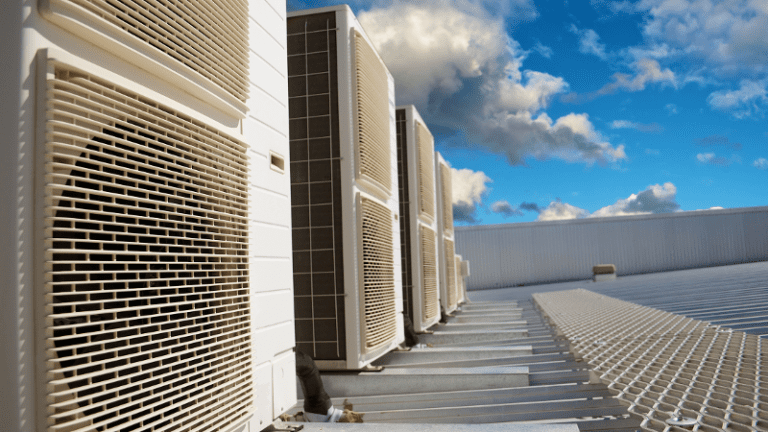For example, there are plenty of commercial structures all throughout the United States that don’t really have sufficient ductwork. This makes air circulation more difficult, putting burdens on other components of the HVAC system. Depending on the environment, it can make things rough for workers or tenants in the space – leading to complications like Sick Building Syndrome.
On the other hand, virtually every other element of your commercial HVAC system can be swapped out at need. This leads to a “Ship of Theseus” situation: Although you are dealing with a complete system, it isn’t always helpful to ask “what is the lifespan of a commercial HVAC system?”
Instead, it’s more valuable to look at this from a granular perspective. You want to extend the life of all the different parts of your system for as long as possible, making controlled replacements only when it’s truly necessary. The “system” itself will last the lifetime of the building, even as elements change.
That said, you can get a fix on the average service life of those individual components.
Based on our experience and research, they are:
- Commercial HVAC Compressor: 8-10 years or more, with declining efficiency after year five
- Chiller: 20-30 years for a water-cooled chiller; 15-20 years for an air-cooled chiller
- Condenser: 20 years
- Thermostat: 5-10 years; smart thermostats need sensor replacements in 2-3 years
- Heat Exchangers: 15-25 years made with modern materials; 30+ with cast iron
- Commercial air handler: 15-20 years
You will see a lot of sources online answering “what is the lifespan of a commercial HVAC system?” with 15-20 years. As you can see above, this doesn’t necessarily hold water. In that time, you may have some key components you never replaced at all, while you will probably need two compressors – the “heart” of the system. Even after 20 years, your commercial HVAC system isn’t going to fall out of your walls.
This naturally raises the question: “How can you increase the lifespan of a commercial HVAC system?”
That is a much more interesting question and gives you plenty of influence. By taking the right steps to optimize your HVAC system, you can make virtually any one of your components last longer. That’s even true of the compressor itself. It is not impossible to see a well-maintained compressor last 12 years, but you should always be fully prepared for replacement as you cross into the last third of the lifespan.
Three Ways to Improve the Lifespan of Your Commercial HVAC System
There’s always something more to do with a commercial HVAC system. Learning where your effort is best spent is an essential skill. Keep these three principles in mind and you will get more reliable and efficient performance out of your HVAC, even as the average age of system components goes up:
1. Keep Your Ducts Clean
Many organizations don’t have the budget for a complete rework of the duct system in a building. Even if the resources are available, it might be considered an unacceptable hindrance to day-to-day work. The older and narrower your ducts, the more vital it is to give them the appropriate attention.
This means making sure all of your HVAC air filters are cleaned or replaced regularly. Typically, that will be every three months, but monitor airflow in your facility and the appearance of your air filters to see if a shorter schedule makes sense. If ducts get clogged, aim to isolate and solve the problem right away.
2. Perform Regular Maintenance
Each individual piece in your HVAC system has its own maintenance needs, which can be broken down further into weekly, monthly, quarterly, and annual requirements. Some components are simple, while others are complex, but there is a general movement toward more serviceability.
Have a documented maintenance plan and make sure every interaction with each HVAC component is written down, especially when repairs or part replacements are made. General observations, such as complaints about HVAC performance or airflow in a given area, can also help you hunt down problems.
3. Focus on Your Commercial Compressor
Your commercial compressor is unique in that its level of efficiency – or lack thereof – has an impact on every other part of the system. The compressor is arguably the component least likely to fail out of the blue, but when it does have issues, they are liable to affect every downstream part of the system.
To prevent the unexpected from bringing down your system, introduce redundancy by having a remanufactured commercial compressor on hand for emergency replacements. They offer the performance and environmental benefits of a new unit at a fraction of the price.












